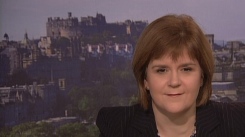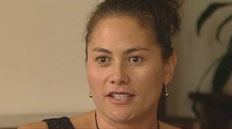BY NATASHA BARSOTTI – Within a day of one another, Scotland and New Zealand have signalled their readiness to put same-sex marriage to a vote, with both countries giving strong indications that marriage equality bills will have the necessary cross-party support to become law. ![]()
In a July 25 release, the Scottish government also says that legislation will include protections for freedom of religion and speech.
“Protection for religious bodies who do not wish to conduct same sex marriages already exists under UK equality law,” the statement says. The government also noted its intention to protect individual celebrants who consider same-sex ceremonies to b e contrary to their faith, adding that an amendment to the equality laws will be required to ensure such protection.
e contrary to their faith, adding that an amendment to the equality laws will be required to ensure such protection.
“We are committed to a Scotland that is fair and equal, and that is why we intend to proceed with plans to allow same-sex marriage and religious ceremonies for civil partnerships,” Deputy First Minister Nicola Sturgeon says. “We are also mindful of the fact that the leaders of all the other parties represented in parliament support same-sex marriage and that there is significant parliamentary support for legislation,” Sturgeon observes.
“Scotland is by no means the first and will not be the last country to legalize same-sex marriage,” Sturgeon adds.
A draft bill will be published for consultation later in the year. The announcement means Scotland will probably have legislation in place ahead of England and Wales.
Opposition from religious leaders like Cardinal Keith O’Brien, the UK’s most senior Catholic leader, has been fierce. O’Brien had called for a referendum on gay marriage to delay the government’s decision, but the idea was rejected, Gay Star News reports. But queer rights campaigners, other faith leaders and members of the Scottish Parliament (MSP) see the government’s move as “a proud day for Scotland.” 
On the same day, British Prime Minister David Cameron reaffirmed his public support for gay marriage at a dinner for queer activists at his Downing St residence. “I think if it’s good enough for straight people like me, it’s good enough for everybody, and that’s why we should have gay marriage and we will legislate for it,” he said.
Then on July 26, a day later, the New Zealand Herald reported that a bill to legalize same-sex marriage was drawn from a ballot and will go before the country’s parliament. The Marriage Amendmen t Bill, brought forward by lesbian Labour MP Louisa Wall, “makes it clear that marriage is a union of two people regardless of their sex, sexual orientation or gender identity,” the report notes.
t Bill, brought forward by lesbian Labour MP Louisa Wall, “makes it clear that marriage is a union of two people regardless of their sex, sexual orientation or gender identity,” the report notes.
If that bill had not been drawn, Green Party MP Kevin Hague also had a private member’s bill in the ballot aimed at legalizing gay marriage.
“The time had come,” Hague told the Herald.
Prime Minister John Key has said he would support such a measure at its initial stage but would not guarantee support through to the final reading when it would become law. He told the Herald that he votes on conscience issues based on the views of his constituents, noting that he was “more liberal” than his voting record indicated.

 Why you can trust Xtra
Why you can trust Xtra


